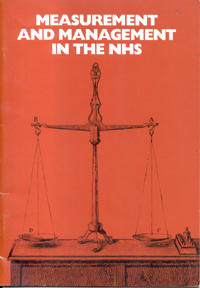The late John Vaizey posed a challenging question about the ‘explosion’ of health care costs in the Western World. ‘Why was it seen as a problem’.…
The late John Vaizey posed a challenging question about the ‘explosion’ of health care costs in the Western World. ‘Why was it seen as a problem’. he asked, ’when even more rapid growth for example in home entertainment and electronics was seen as…
The late John Vaizey posed a challenging question about the ‘explosion’ of health care costs in the Western World. ‘Why was it seen as a problem’. he asked, ‘when even more rapid growth for example in home entertainment and electronics was seen as an economic achievement?’ Clearly, the answer does not depend only on the fact that Health Services in Europe are generally financed out of collective funds. In the United States, where much of medical care is still privately financed, ‘cost containment’ is an even more fashionable issue than in Europe.
One explanation, put forward by the first Chairman of the Office of Health Economics, Or Colin Cooke, is that people simply fail to realise that Health Care is an ‘industry’. It involves investment, research, and employment like any other innovative enterprise. Its growth not only improves the health of the population (with all its own attendant economic benefits), but also generates wealth for its employees and suppliers in the same way as other industrial organisations.
It is true that in the context of the tax-funded NHS in Britain, the growth of health care must to some extent be managed as part of the national economy as a whole. This is a complicating factor, but it should not conceal the fact that the expansion of the health care sector adds to national wealth rather than detracting from it.
Thus, this paper looks at the economic issues facing the National Health Service in the late 1980s from the standpoint of ‘The NHS as an Industry’. Albeit, it is an industry with a very special social responsibility in society which creates strong emotional feelings and which invokes conflicting political ideologies. But the fact remains that irrespective of these political issues it must conform to fundamental economic principles.
The improved well-being of the patient (that is, the successful outcome of medical care) must always be the primary consideration of those in the National Health Service. But no one should think of the service as being a financial parasite on the national economy. It generates wealth in addition to well-being. This paper is about how it can fulfil these dual roles most efficiently. The NHS lacks the conventional economic yardstick of ‘profit’ to measure its success. The developments which are discussed in the following pages explain the steps that are being taken to try to produce alternative measures of economic effectiveness.
